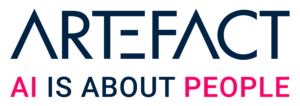AI for Industry Summit by Artefact - September 17th, 2024 - Paris
Key learnings from the panel discussion with Ronan Tallec, Sales Director Energy & Utilities at Salesforce, Nezar El Hjiri, Data Scientist – DataLab at GRDF, and Severin Duc, Founder of Back/Future & PhD in History.
AI in field operations
Ronan Tallec emphasized how AI optimizes field operations for energy companies by improving route planning, safety, and efficiency for technicians. AI helps workers access crucial data through generative AI tools while on their way to job sites, enhancing preparation and improving customer satisfaction. For GRDF, Nezar El Hjiri explained how AI enables predictive maintenance on gas networks, helping to prevent failures and ensure safety. A standout AI application detects potential infrastructure damage from nearby construction sites, allowing GRDF to visit just 4% of sites but still catch half of the risks.
AI in energy transition
AI plays a significant role in supporting GRDF’s goal of transitioning to 100% renewable gases by 2050. Nezar El Hjiri highlighted how AI is used in predictive maintenance for biomethane production units, ensuring their availability and optimizing production. AI also helps avoid gas leaks, reducing emissions and making the energy infrastructure safer and more sustainable. GRDF is further investing in R&D and AI-driven tools to improve green gas technologies, which will be essential for a successful energy transition.
Harnessing the power of renewables
Ronan Tallec from Salesforce explained how AI assists in managing the Energy Mix consumed by customers. By integrating AI into Salesforce’s platform, companies can monitor CO2 emissions and use natural language tools for “what-if” scenarios to analyze data efficiently. AI helps companies draft action plans to optimize their energy consumption and reduce emissions, contributing to more effective use of renewable energy sources.
Improving customer experience with AI
Ronan Tallec also discussed how AI is transforming customer service in the energy sector. AI agents help customer service representatives gather relevant data, analyze customer profiles, and offer suggestions in real time during conversations. This automation allows agents to focus on higher-value tasks, enhancing the overall customer experience. AI in call centers accelerates knowledge sharing, enabling faster, more accurate responses to customer inquiries, regardless of whether the questions are technical or financial.
AI and energy consumption management
Nezar El Hjiri outlined how GRDF uses AI tools to analyze customer consumption patterns and detect unusual volumes, helping customers reduce their energy bills. A recent pilot project allowed 500,000 customers to cut their winter energy bills by 16% through personalized recommendations. By studying usage data, AI can identify opportunities for energy savings and provide actionable insights to customers.
Future trends in AI for energy
When discussing the future of AI in the energy industry, Ronan Tallec emphasized that the biggest trend is making AI accessible to end users. While tools like ChatGPT are user-friendly, companies need to focus on integrating AI deeply into their platforms to provide meaningful insights tailored to specific business needs. For example, AI embedded within CRM systems can help sales and service teams optimize their processes. Nezar El Hjiri added that GRDF is working on leveraging unstructured data through AI and generative models, which could open new possibilities for improving energy management and infrastructure resilience.

 BLOG
BLOG



